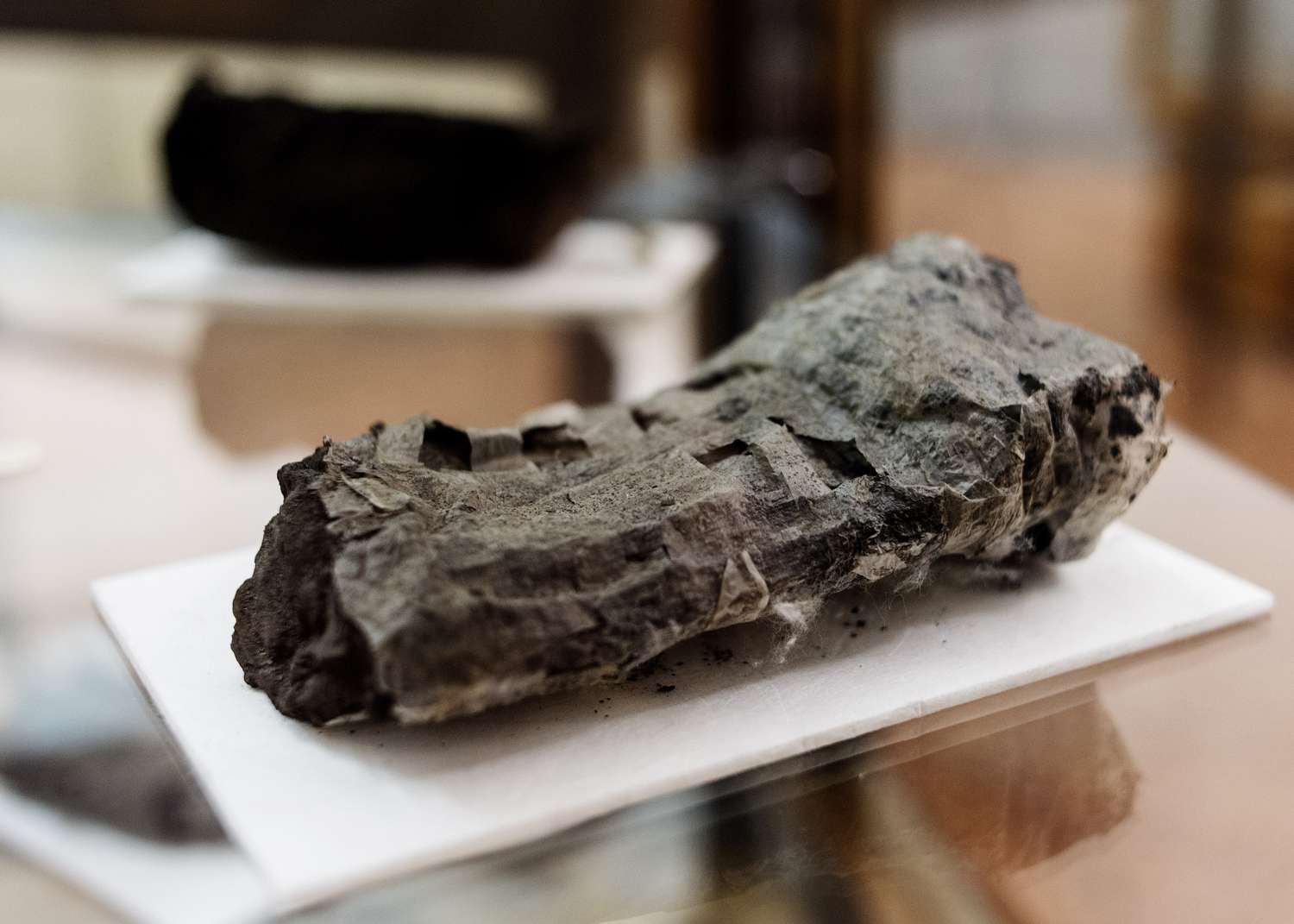AI Deciphers Ancient Scroll: The Vesuvius Challenge
A segment of an ancient scroll, dating back 2,000 years, has been successfully decoded by researchers utilizing Artificial Intelligence (AI) technology.
The sponsors of the “Vesuvius Challenge” recently announced online that a team of three researchers was awarded $700,000 for their innovative use of AI in deciphering the scroll, which had sustained damage during the eruption of Mount Vesuvius in 79 A.D.
The competition, initiated last year, aimed to tackle the longstanding issue of the Herculaneum Papyri, ancient texts that were charred during the catastrophic event in Italy centuries ago.
The triumphant team comprised Youssef Nader, a Ph.D. candidate from Berlin, Luke Farritor, a scholar from Nebraska and an apprentice at SpaceX, and Julian Schilliger, a Swiss technology student. Their success hinged on employing AI to identify patterns on the fragile paper and distinguish between ink and papyrus.
Historical experts noted that the ancient scrolls were exceedingly fragile, susceptible to complete destruction if mishandled, and lay buried under over 65 feet of volcanic debris.
The content of the scrolls, as revealed by the Vesuvius Challenge organizers, includes writings by Philodemus, an Epicurean philosopher, focusing on themes such as music, cuisine, and the pursuit of life’s pleasures in his work, The Herculaneum Papyri.
Scientists generated high-resolution CT scans of four artifacts, tasking participants with interpreting four passages containing a minimum of 140 characters, a substantial portion of which could be reconstructed.
Recent findings indicate that approximately 5% of the initial bookmark has been successfully deciphered. The organizers aim to progress from interpreting 5% of one scroll to 90% of all four scanned scrolls by 2024, paving the way for the comprehensive reading of all 800 scrolls.
The latest breakthroughs occurred when Farritor decoded the second word from a scroll last month, identifying the Greek term for “purple” and earning a \(40,000 reward. Nader also made a significant discovery around the same time, receiving a \)10,000 prize for his valuable contribution.
Nat Friedman, a member of the Vesuvius Challenge, expressed his delight in working on this extraordinary project in a post shared on X (formerly Twitter). He extended gratitude to Brent Seales for his foundational work on the project, acknowledged the support of friends and Twitter users, and commended the numerous participants whose efforts were instrumental in the success of the Vesuvius Challenge.










